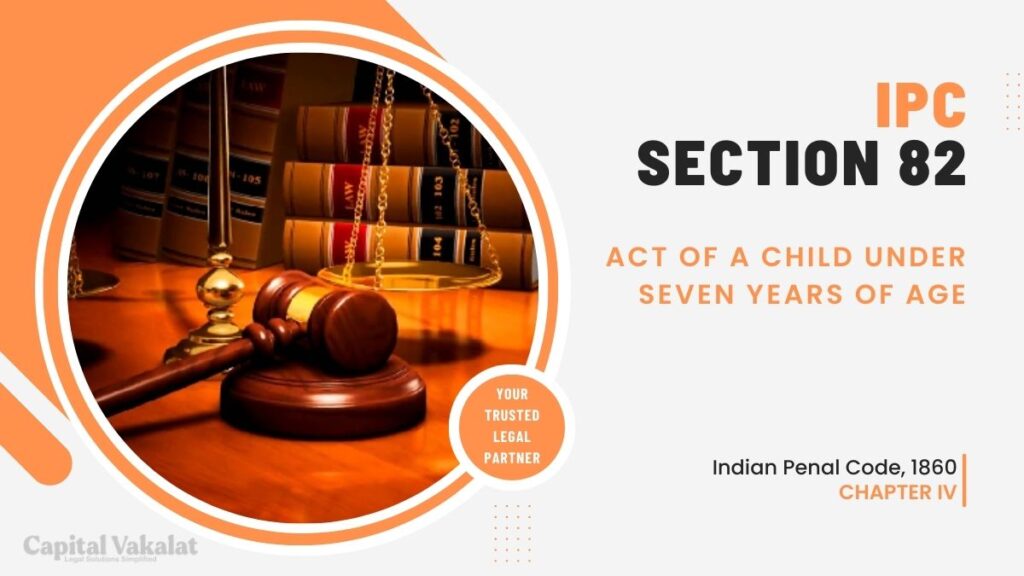In the complex landscape of legal systems, there exist provisions that often leave us intrigued. One such provision is Section 82 of the Indian Penal Code (IPC), which deals with acts committed by a child under seven years of age.

In this article, we will delve into the intricacies of Section 82 IPC, exploring its historical context, legal implications, and the protection it provides to young children.
Introduction to Section 82 IPC
Section 82 of the Indian Penal Code is a unique provision that acknowledges the innocence and incapacity of children under seven years of age to commit criminal acts with intent. It reflects the fundamental principle of criminal law that a person must possess the requisite mental capacity to be held criminally liable.
Historical Perspective
To comprehend the significance of Section 82 IPC, it’s essential to consider its historical roots. This provision draws inspiration from English common law, where it was recognized that young children lack the mental maturity to form criminal intent. This humane approach aims to shield the youngest members of society from the harsh consequences of the legal system.
Legal Implications
Immunity from Prosecution
Under Section 82 IPC, a child under seven years of age is considered doli incapax, meaning incapable of committing a crime. This immunity extends to both civil and criminal liability, ensuring that children at this tender age are not subjected to legal proceedings.
The Role of Intent
One of the critical aspects of Section 82 is its emphasis on the importance of criminal intent. To establish guilt in a criminal case, intent or mens rea is a crucial element. Since young children lack the cognitive development to understand the consequences of their actions fully, the law does not attribute criminal intent to them.
Protecting the Rights of Children
International Conventions
India, as a signatory to various international conventions on child rights, recognizes the need to protect children from being held criminally responsible for their actions when they are too young to comprehend the consequences. Section 82 IPC aligns with these international obligations.
Social and Psychological Considerations
The provision takes into account the social and psychological development of children. It acknowledges that children under seven are still in a formative stage, heavily influenced by their environment and incapable of making sound judgments.
Conclusion
In a world that demands accountability, Section 82 IPC serves as a reminder that not all individuals are equally equipped to bear the burden of criminal responsibility. It reflects the compassion of the legal system towards children under seven years of age, shielding them from the harsh realities of prosecution.
In conclusion, Section 82 IPC stands as a testament to the humane and protective nature of the Indian legal system, ensuring that the innocence of young children is preserved and that they are shielded from the complexities of criminal law.
FAQs
What if a child commits a serious offense?
In cases involving serious offenses committed by a child under seven, the focus shifts to the responsibility of the guardian or parent, who may be held accountable for negligence.
Does Section 82 IPC apply to civil cases as well?
Yes, Section 82 IPC extends immunity to both civil and criminal liability, ensuring comprehensive protection for young children.
Are there any international guidelines that support Section 82 IPC?
Yes, various international conventions and agreements emphasize the need to protect the rights of children, aligning with the principles of Section 82 IPC.
Is Section 82 IPC an outdated provision?
No, Section 82 IPC continues to be relevant in safeguarding the rights of young children and is consistent with modern legal principles.